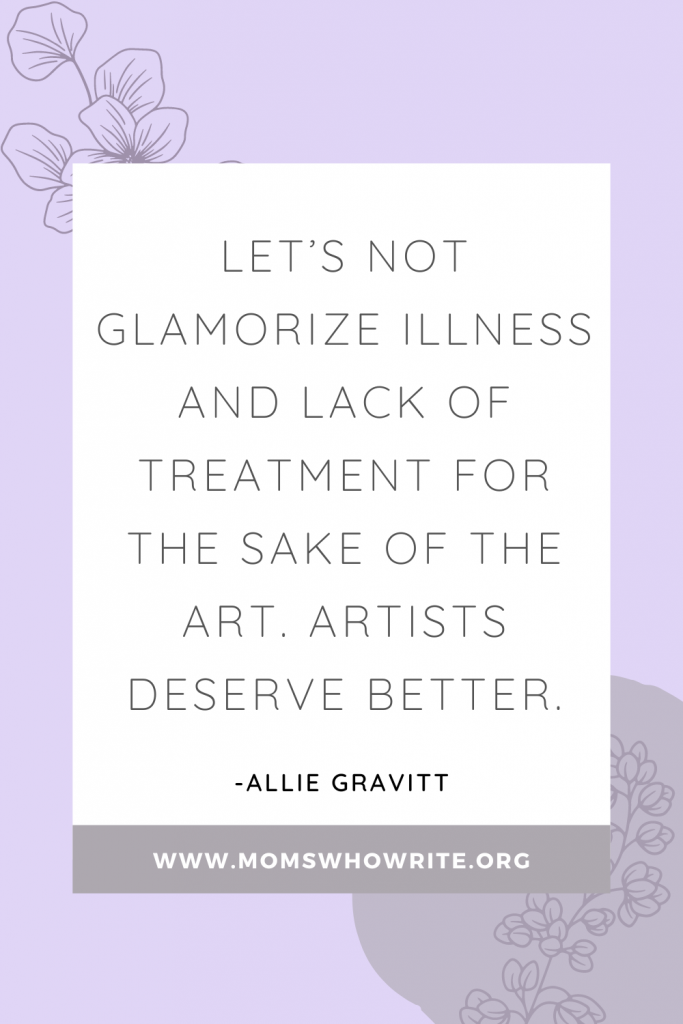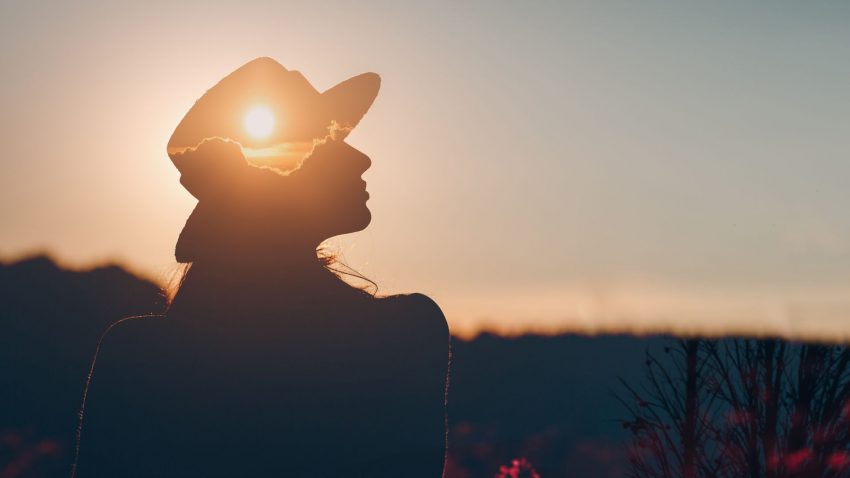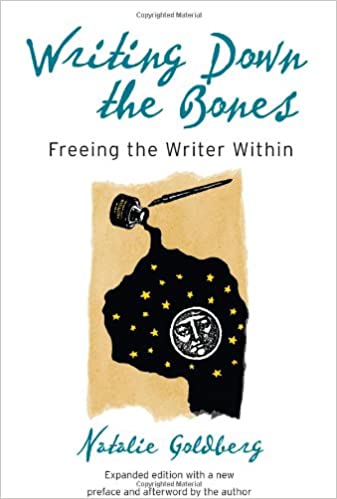The trope of the mentally ill creative is widely accepted as truth. Very few people bother to challenge it.
In fact, we romanticize it. We look for the beauty in pain. Many of us (look at my fellow poets) even believe that the pain and sadness and chaos is necessary to creation—that if we were not broken, we would not be able to make things that are beautiful.
But what if you don’t have to be broken to make beautiful things?
I’ve been entertaining the idea that my misery is not necessary for my art. That my struggles can be independent of my creativity. Going one step further, are we harming artists by glamorizing the mentally ill artist trope?
As I read more and explore more about the lives of creatives and read through studies on this deeply held cultural belief that mental illness breeds creativity, the less I’m finding support for the theory. There is actually no scientific evidence of any link of creativity to mental illness.
What if this notion is inhibiting an artist from getting necessary help? What if a creative is too afraid of not being able to create, so they refuse to heal?
On a personal level, I am hella ADHD, diagnosed as an adult. I have always struggled with focus, productivity, memory, relationships, and more as a result. For over a decade I have believed that medication killed my creativity. More specifically, because ONE dose of ONE particular medication made it hard for me to write creatively, I have refused to treat myself for my entire adult life.
It sounds crazy when I think about it like that. I’m refusing treatment because some weird part of my brain has convinced me that I need to suffer through my ADHD or I will not be able to create.
What if, though, I’m actually impairing my productivity? What if treatment could help me meet deadlines, plan, and remember?

Being healthy is not a liability. I think a lot of people feel like they need to be tortured to create, because they’ve internalized a belief that beautiful things come from pain. They believe their struggle is an asset. But just as much beauty comes from reflection and growth and stability and introspection, which can all be incredibly healthy.
I still believe that artists can see the beautiful in the ugly. That we can find truth in trauma. It’s a gift to see the world the way we do, and there’s no question life experience refines that skill.
But let’s not glamorize illness and lack of treatment for the sake of the art. Artists deserve better.
About the Writer: Allie Gravitt is a mom of 3 and lives in metro Atlanta with a house full of animals and plants. Her debut poetry collection, prisonbreaks, and second collection Killing Ghosts are available now on Amazon. Follow Allie’s writing journey on TikTok and Instagram.
Book Highlight
This is Natalie Goldberg’s groundbreaking first book that helps writers combine the act of Zen meditation with their writing practice to render magnificent results.
As we focus on our mental health as writers, evaluating our process is key. Goldberg has been cheering on her fellow writers for more than twenty years. She describes writing as no different than other forms of Zen practice: “it is backed by two thousand years of studying the mind.”

